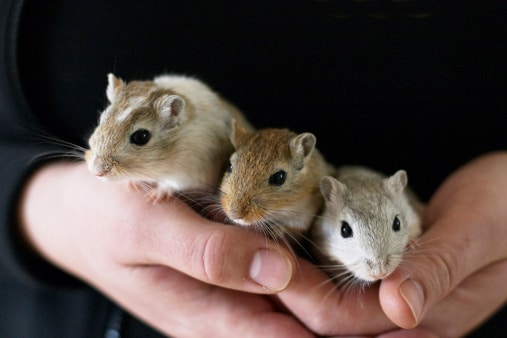If you’ve ever gazed into the adorable eyes of a gerbil and wondered how long these fascinating little mammals live, you’ve come to the right place. This article not only answers the question of a gerbil’s lifespan but also delves deep into the factors that contribute to their longevity. As you read, you’ll find that a gerbil’s life is touched by various elements—from genetics to environmental conditions, and even the quality of care they receive from their human companions.
What Are Gerbils and Why Are They Popular Pets?
Gerbils are small, affable rodents that have captured the hearts of pet owners around the globe. Known for their calm demeanor and low-maintenance lifestyle, they make excellent household companions. These animals originated from Africa and Asia and are mostly descendants of the Mongolian gerbil subspecies. However, it’s worth mentioning that gerbils aren’t suitable for everyone, particularly young children, as they are sensitive creatures. They can get injured easily if mishandled and may bite when frightened.

Unique Physical Characteristics of Gerbils
When you first see a gerbil, you’ll notice its long, furry tail capped with a tuft of hair, a feature that sets it apart from other rodents. Their coat has a unique pattern called ‘agouti,’ characterized by hairs streaked with shades of gray, yellow, or black. Selective breeding by professionals has introduced gerbils of various colors like white, black, and gold. The gerbils have a distinct habit of sitting on their hind legs, making them particularly charming to watch.
Understanding the Life Cycle of a Gerbil
The reproductive habits of gerbils are indeed interesting. They can reproduce several times a year, and their pregnancies last around three weeks. Newborn gerbils are vulnerable; they are born hairless with closed eyes. A typical litter will have between 4 and 7 babies. As these young gerbils grow, their dietary needs change, requiring specialized feeds to ensure optimal health. Adult gerbils reach sexual maturity at around three months and continue to be fertile until approximately 20 months of age.
What Determines the Lifespan of a Gerbil?
So, how long do gerbils live? Their lifespan typically ranges from 2 to 6 years, depending on various factors like their living conditions, diet, and even their social interactions. Specifically:
Lifespan in the Wild
In the wild, Mongolian gerbils have a much shorter lifespan, averaging around 2 to 3 years. Many wild gerbils face the risks of predators, food scarcity, and diseases, leading to a high mortality rate within the first year.
Lifespan in Captivity
In contrast, gerbils in captivity tend to live longer, often reaching up to 5 years. The controlled environment minimizes risks from predators and weather conditions. However, poor care and inadequate nutrition can negatively impact their lifespan.
Tips for Increasing Your Gerbil’s Lifespan
Want to give your gerbil the best shot at a long, healthy life? Start by purchasing your pet from a reputable breeder known for a healthy lineage. Once your gerbil is part of your family, focus on proper nutrition, using a well-balanced diet of pellets, seeds, and vegetables like celery and broccoli. Equally crucial is providing a clean, comfortable living environment that is neither too isolated nor too noisy. Social interactions with other gerbils can also contribute to their mental well-being, thus possibly extending their lifespan.
Conclusion
Owning a gerbil is a delightful experience, but it comes with the responsibility of providing quality care. Factors such as epilepsy can affect their lifespan, but with appropriate care and a conducive living environment, your gerbil can live a fulfilled life. Make it a point to regularly clean their habitat, monitor their weight and dental health, and engage them in social activities to give them the best chances of living a longer, healthier life.

Editorial Staff
Our writers, editors, content managers, and SEO specialist. We all take part in crafting amazing articles. We spend hours ensuring that each article is based on facts, researched, and thorough. You'll never want to click the back button to look for more answers other than here!
